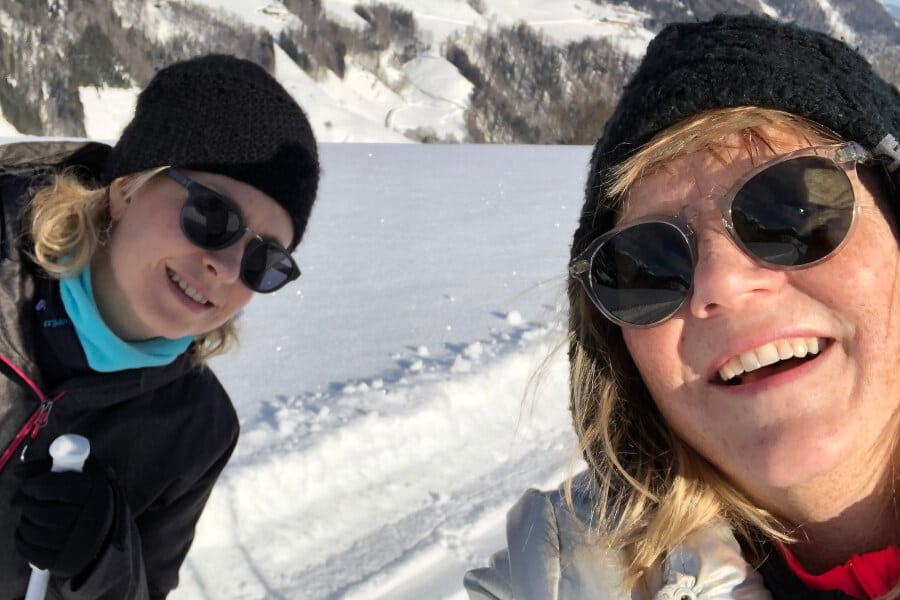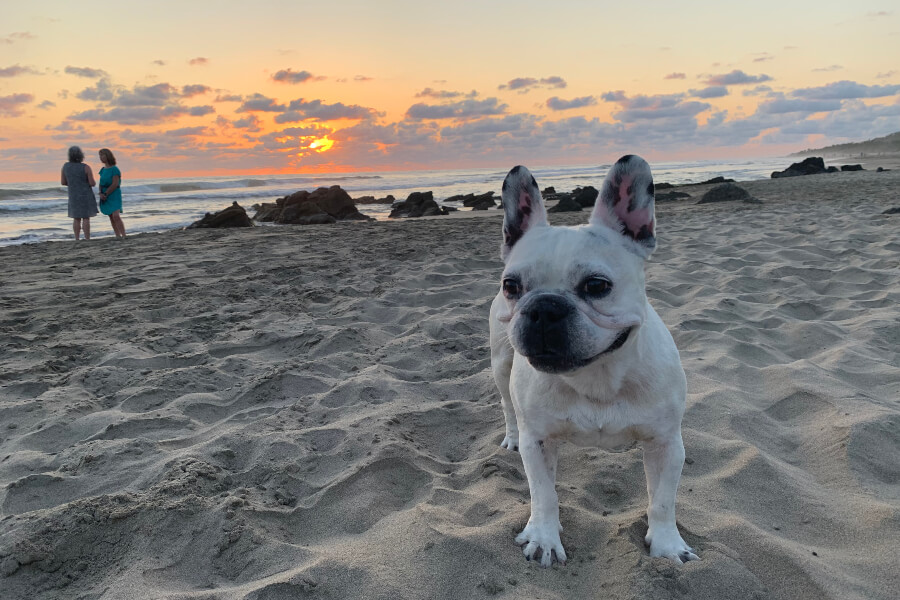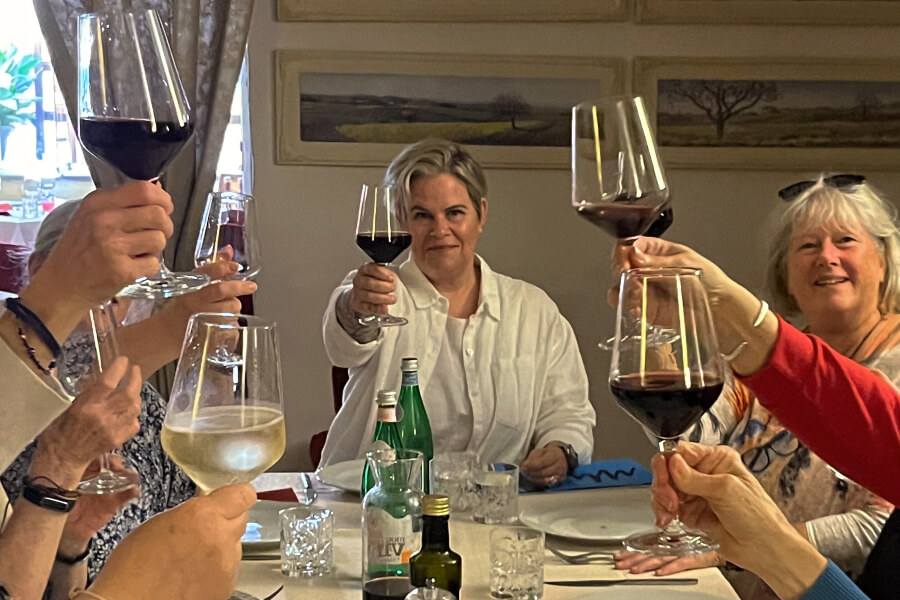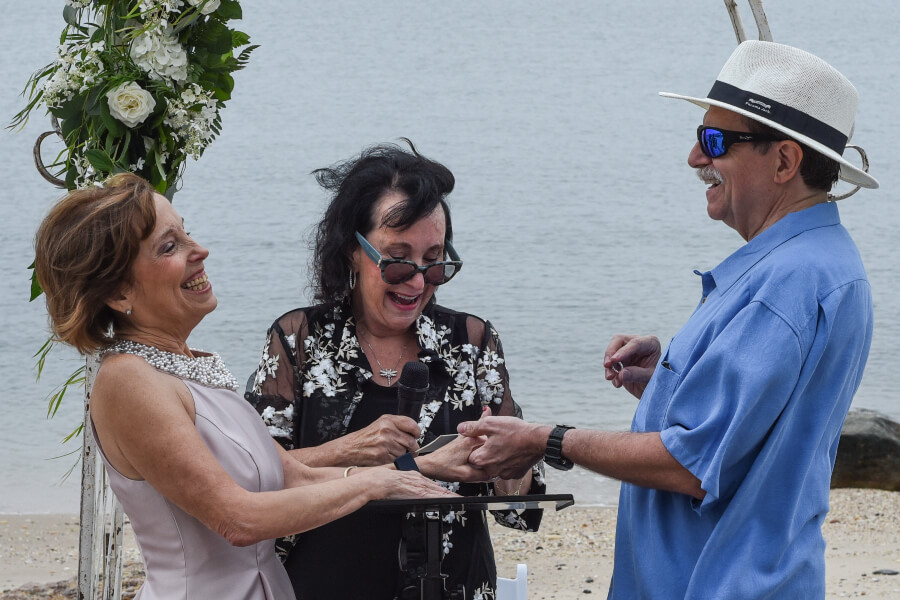Walking in the city a few weeks ago, I stopped in front of Carnegie Hall to read the roster of orchestras and conductors that would be coming to town. It had been much too long since I’d heard live classical music, and I felt a sudden longing. Riccardo Muti….Did I ever see him conduct? I mused. Joshua Bell—I’d love to hear him perform. Then, I wonder if Conductor X (as I’ll call him here) is still alive? And boom, I was hit with a memory, a greyed-out and foggy flash, of being in a swimming pool with Conductor X, his hand sliding into the top of my swimsuit and fondling my breast.
But now, a wave of memory rushed over me so quickly that I almost couldn’t catch my breath.
Like most (perhaps all) women, in the wake of the Weinstein scandal I scoured my past, looking for #MeToo moments during my decades on the job—and felt very lucky that, despite working mainly with men throughout my 20s, the most I could remember was a few somewhat benignly leering comments by one coworker. Yes, there was sexism and obnoxious condescension during those early years. But harassment? Not that I could recall, for me, anyway.
But now, a wave of memory rushed over me so quickly that I almost couldn’t catch my breath. It didn’t feel traumatic; I had a flash of retroactive anger and confusion, but it was also weirdly fascinating, the process of memories resurfacing. It’s not that I’d blocked out the whole incident with Conductor X—I just hadn’t thought about it in decades, and I had never gone back over it in detail. And in the glare of what I know now—compared to my 24-ish self—it sure looked different. What was also interesting: There was so much I couldn’t remember.
Young and Eager
I met Conductor X in the first few years of my editing career, when the publicist of his orchestra suggested him for a profile in the magazine where I was working. He was semi-famous—certainly not a household name, but well known to classical music devotees, of which I was one. I’d studied classical music most of my life and loved the idea of combining it with my editing job. I had pitched a few other ideas that hadn’t worked out, but maybe this one would. I hadn’t edited much on my own yet, so I felt like a bit of a fraud accepting the publicist’s idea of sitting down for a conversation with Conductor X “to see if he’s a right fit for the magazine,” she said. But I was game and nervously ambitious, so I took the next Friday off and rode the subway up to his Manhattan apartment.
I was game and nervously ambitious, so I took the next Friday off and rode the subway up to his Manhattan apartment.
What I remember is a dark and somewhat musty place, the vague presence of a wife somewhere, and an overly solicitous Conductor X scooting his chair forward, a little too close to mine. He was a good 35+ years older than I was, and to my mid-20s eyes he seemed almost elderly, craggy and lined, though still kind of striking. I fumbled with my tape recorder (borrowed from my dad), and started in on my questions, but he was much more interested in hearing about me.
It was flattering, talking music with him. He wanted to know who my favorite composer was—Ravel, at the time—and asked my opinion of one of Ravel’s piano concertos, which he was thinking of having the orchestra perform “on our international tour.” I don’t remember anything else about our conversation or whether he answered my questions, just the impression of his intensity and nearness, and a vague discomfort. I probably attributed it to my nerves; I’d never interviewed anyone before. At some point, he invited me to accompany him the next day to an outdoor music festival in New Jersey, where he was conducting his orchestra. We could continue the conversation, he said, and he’d introduce me to the extremely famous pianist who was soloing with them.
I don’t remember anything else about that day. I don’t remember if I felt excited or nervous or proud when I went home that evening or if I told my boyfriend or sister or parents. I don’t recall thinking about what I should wear or wondering whether it was odd that he’d invited me. What’s left is just a series of flashes, with a lot of blanks in between.
Trauma and Memory: Piecing Together That Long-Ago Day

But room was made, and I sat stiffly next to him. He took my hand as we drove off. I remember the cellist’s eyes in the rearview mirror, looking at us as Conductor X tried to cozy up and kiss me, and I recall feeling supremely icky and uncomfortable. It was dawning on me why he had invited me: not as a professional but as his groupie or….floozie. I felt dirty. I know myself: I wouldn’t have wanted to make a scene and was probably just hoping that he’d stop. And he did stop for the rest of the ride. I wonder, looking back, whether he thought I was simply uncomfortable in front of the cellist.
We’re in his room, fresh out of the pool, and Conductor X puts my hand on the crotch of his wet swimsuit.
Next memory flash: We’re at a motel, where Conductor X said we could take a dip in the pool before he changed for the concert. As he shepherded me into his room, the cellist seemed troubled and hesitated at the door. “Um, ok?” he said. I tried to act casual and grown-up, but I was nervous and unsure of what to do. I assume I changed into my swimsuit in Conductor X’s bathroom (had he told me to bring a swimsuit? I guess so).
Next memory flash: I’m in the pool with this older man with his older-man body; there was just one family in the pool and a lifeguard in his chair, and they were looking at us. I was embarrassed when he followed me to the edge of the pool, trying to kiss me and copping a feel. I felt like a slut, this young woman with a much older man who was clearly Someone Important. I didn’t confront him; I laughed nervously and swam away.
Another flash: We’re in his room, fresh out of the pool, and Conductor X ups the ante, pulling me in and putting my hand on the crotch of his wet swimsuit. I felt repelled, but not in any danger; he was a small man, and seemed so…old. Pathetic. I said something like, “I’m not here for this,” and I don’t recall what he said, but he backed off and immediately froze me out. For him, it was over and I was no longer a factor in his day. Next flash: We’re at the outdoor concert venue, he’s up on stage rehearsing the orchestra, and I’m sitting with the famous pianist. His eyes rake over my body, and he says, “You’re here with Conductor X, right? Lucky guy.” I remember being tired, wanting to leave, feeling trapped.
And that’s where it ends in my mind. What really bugs me is that I have no memory of how I got home. I’ve thought about this until my brain hurts. I was at least an hour away from the city, and I would remember if I jumped on a train or bus. How would I have even known how to do that? Would I have had any money with me? I was so broke in those post-college days. Did the cellist drive me back? Was Conductor X with us? Did he sit in the front seat this time? I suspect he would have—I held no interest for him anymore, once I’d said no. But maybe he stayed in that motel. Maybe his plan had been that I would stay there with him.
What Remains With Us
In the days following, I think all that I told people, if I told them anything, was along the lines of “Ew, he made a pass at me,” and then laughed it off. I’m sure I squelched the feelings: the shame and embarrassment, the shuddering ickiness, the sense of stupidity. Of course, he didn’t ask you because he thought you’re an up-and-coming editor at a big-time magazine—he asked you because you’re 24 and cute. How dumb can you be? Those emotions are probably part of what made my memory so spotty, says Michael A. Yassa, Ph.D., director of the Center for the Neurobiology of Learning and Memory at the University of California, Irvine. Events that are tied to strong emotions, he explains, stick around in your memory much more strongly than neutral ones; that’s why most of what I recall is tied to a sense of shame.
I’m sure I squelched the feelings: the shame and embarrassment, the shuddering ickiness, the sense of stupidity.
Experiencing a trauma leads to a patchy memory as well, says Yassa. Evolutionarily, our brains want to remember the things that helped it survive, not necessarily the other stuff. “Aspects of a traumatic episode will disappear because they’re just noise—they weren’t critical to your survival,” he says. “Other parts of an event will be enhanced. So your recall will seem fragmented because there are patches that are missing.”
But was this a trauma? It’s commonly defined as “a deeply distressing or disturbing experience,” and I suppose it was that, despite my attempts to dismiss it or just “Ew” it away. I wasn’t physically injured or threatened; I didn’t feel in danger. But I did feel used and then dismissed. Fooled and then foolish.
That day when the memories first came flooding back, I went back to my office and hit up Google: Conductor X died about 10 years ago, in his late 80s, in that same apartment I’d visited decades before. His wife and two kids are still alive, so he’ll stay unnamed. Even though I buried those feelings of stunned shame, I do wonder what impact they had on me, on how I carried myself, on how I measured my worth at work, especially in those early years, when being polite seemed more important than pushing back.
***
Lisa Bain has worked as an editor in publishing for over 30 years, covering health and issues related to women and families. She’s the editor of Dr. Oz The Good Life and executive director of Hearst Lifestyle Group’s health newsroom. She has two daughters and lives in the New York City area.
Further Reading
The #MeToo stories you haven’t heard: Meet the women speaking out in Nigeria





















0 Comments